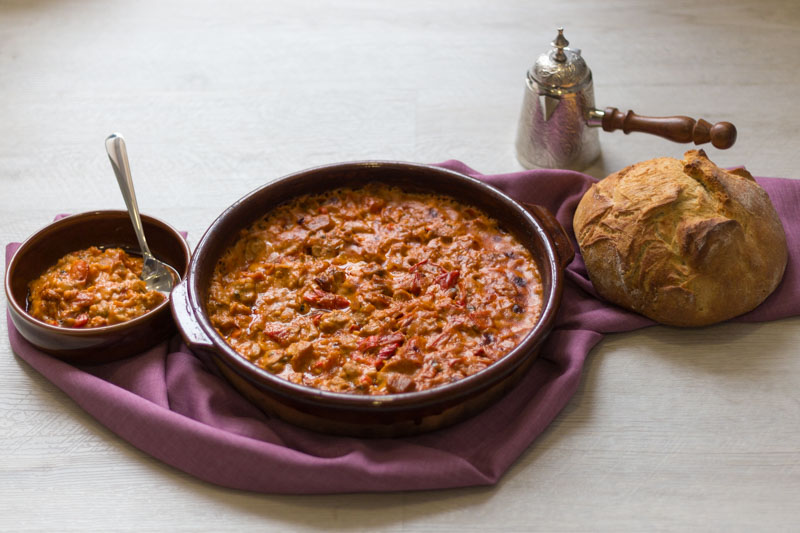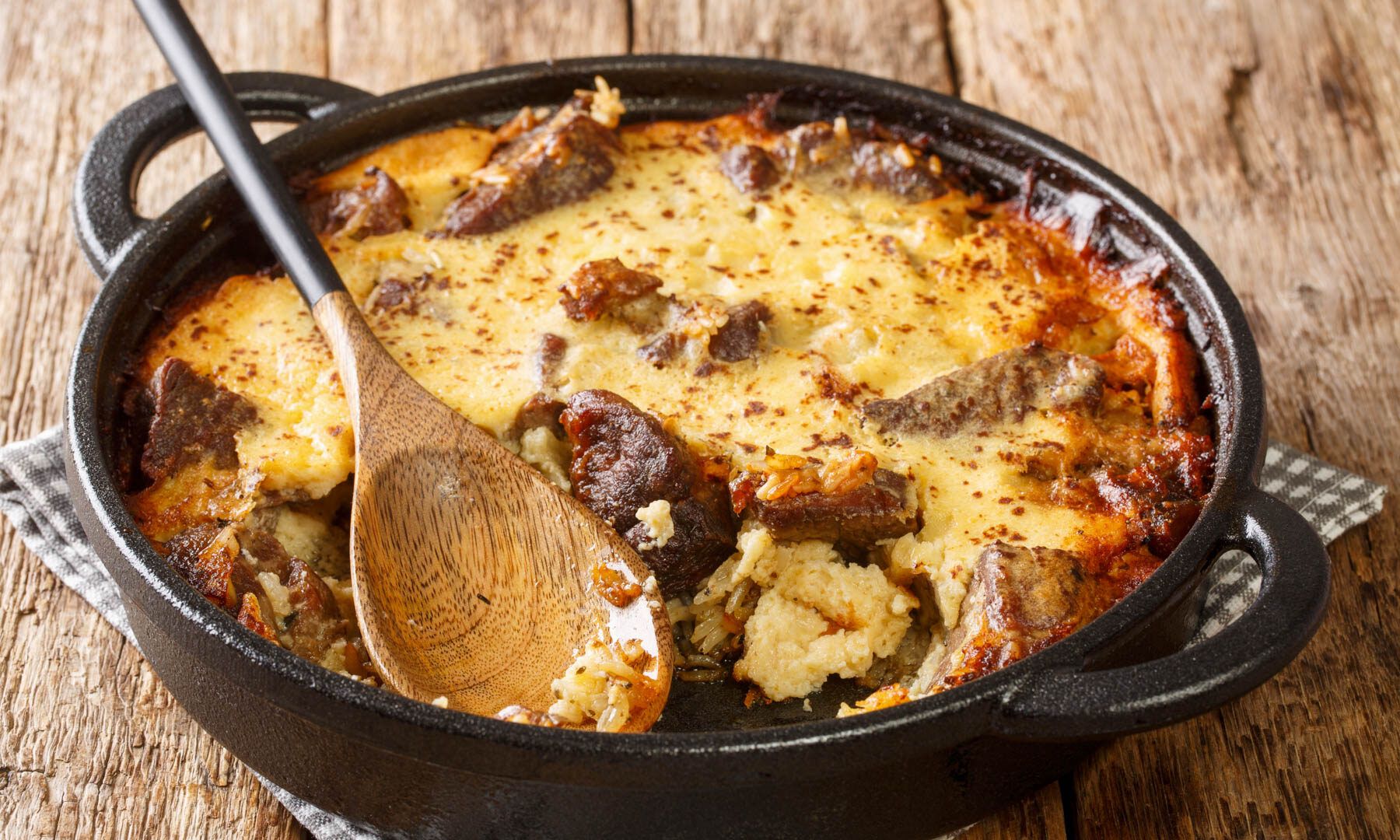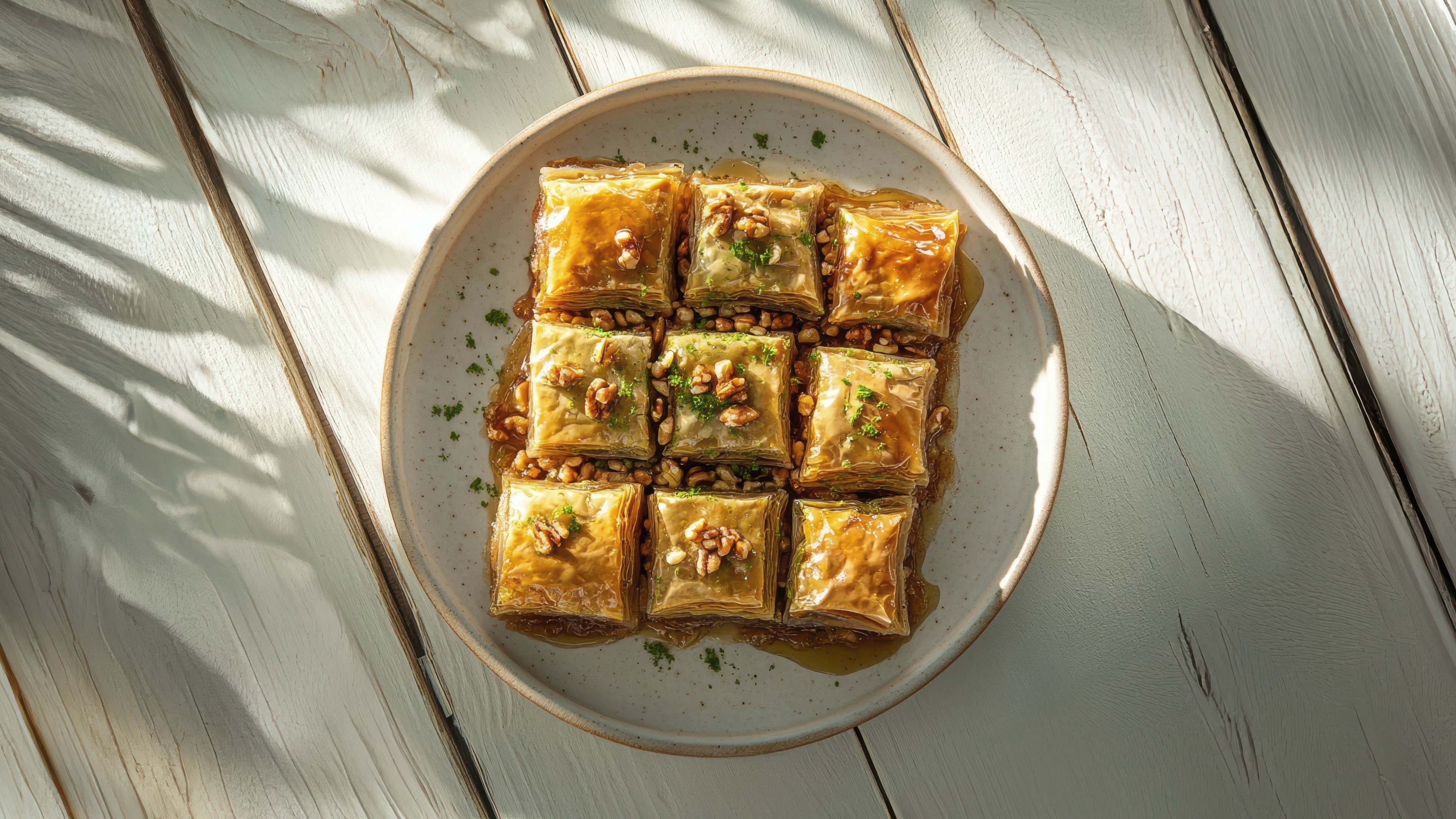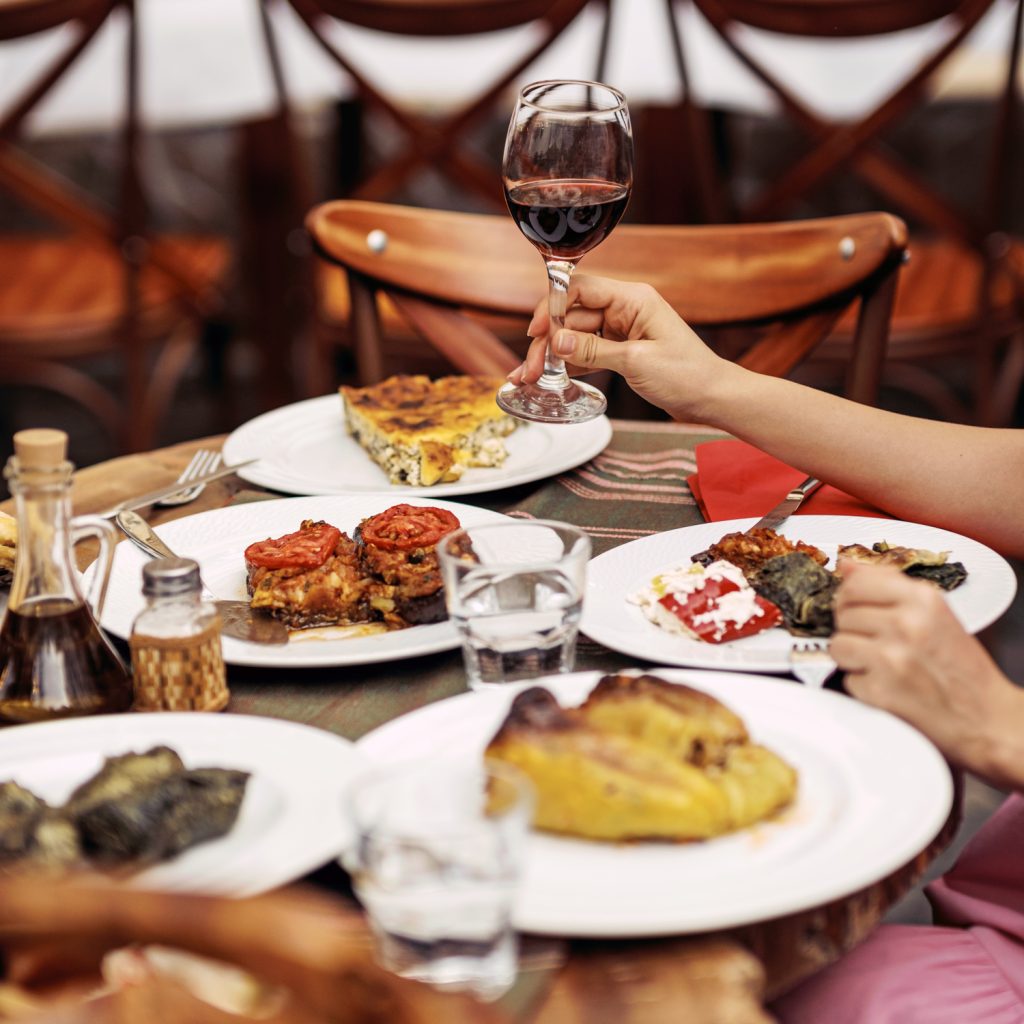Taste the Authenticity: Discovering Albania’s Best Food
Source: drivemefoody.com Introduction Overview of Albanian Cuisine Albanian cuisine reflects a rich tapestry of history, combining influences from the Mediterranean, Balkans, and Ottoman traditions. It is marked by a reliance on fresh ingredients, herbs, and spices, providing a vibrant array of flavors. Traditional cooking methods, such as grilling and baking, highlight the nation’s agrarian roots….

Introduction
Overview of Albanian Cuisine
Albanian cuisine reflects a rich tapestry of history, combining influences from the Mediterranean, Balkans, and Ottoman traditions. It is marked by a reliance on fresh ingredients, herbs, and spices, providing a vibrant array of flavors. Traditional cooking methods, such as grilling and baking, highlight the nation’s agrarian roots.
Significance of Authentic Albanian Food
Authentic Albanian food is more than just sustenance; it encompasses culture, family, and hospitality. Sharing a meal is a cherished tradition, where dishes like Byrek and Tavë Kosi serve as a nostalgic reminder of home for many Albanians. Here are some reasons why authentic Albanian cuisine is significant:
- Cultural Connection : Each dish tells a story of the heritage and regions of Albania.
- Seasonal Freshness : Ingredients are often sourced locally, preserving the flavors of the land.
- Community Bonding : Meals are a central part of gatherings, promoting unity and friendship.
In discovering Albanian cuisine, one opens a window into the heart and soul of this beautiful country.

Traditional Albanian Dishes
Byrek: The Albanian Pastry
One cannot talk about traditional Albanian cuisine without mentioning Byrek. This delightful pastry is filled with various ingredients, including spinach, cheese, or minced meat, all wrapped in layers of thin dough.
- Versatile Filling : Byrek can be customized based on seasonal vegetables or personal preferences.
- Serving Occasion : It’s popular as a snack, appetizer, or even a main dish during family gatherings.
Tavë Kosi: Albania’s National Dish
Tavë Kosi is perhaps the pride of Albanian cuisine. Often referred to as Albania’s national dish, this baked lamb and yogurt casserole is a hearty meal perfect for any occasion.
- Ingredients : The dish features tender lamb, rich yogurt, and rice, all blended with eggs and herbs.
- Cultural Significance : It’s commonly enjoyed during special celebrations like birthdays and weddings, symbolizing comfort and tradition.
Fërgesë: A Delicious Albanian Stew
Another gem in Albanian cuisine is Fërgesë. This stew can be made with either peppers or beans, often accompanied by feta cheese for enhanced flavor.
- Ingredient Harmony : The combination of sweet peppers, tomatoes, and spices creates a comforting dish.
- Dining Experience : Fërgesë is best enjoyed with crusty bread to soak up its delicious sauce.
Qofte: Traditional Albanian Meatballs
No meal is complete without Qofte, flavorful Albanian meatballs that are grilled to perfection.
- Customizable Recipe : These meatballs are often made from minced beef, lamb, or a mix, seasoned with various herbs.
- Serving Style : They are typically served alongside a fresh salad and yogurt, perfect for a summer barbecue or cozy family dinner.
Each dish represents not just flavors but also stories, memories, and the artistic touch of Albanian cooking that brings families together. These traditional dishes invite both locals and visitors to savor the authentic tastes of Albania.

Unique Ingredients in Albanian Cuisine
Flija: Layered Pancake
Flija is a remarkable Albanian delicacy that showcases the creativity and skill involved in local cooking. This unique layered pancake is made from simple ingredients, primarily flour and water, yet it results in a dish bursting with flavor.
- Cooking Method : Traditionally prepared in an outdoor pan over an open fire, the layers are cooked one at a time, creating a delightful texture.
- Perfect Pairings : Often enjoyed with yogurt or honey, Flija is a popular choice for gatherings and celebrations.
Lakror: Albanian Spinach Pie
Another beloved dish is Lakror, an incredibly savory spinach pie. It’s a dish that many Albanian families hold dear, often passed down through generations.
- Ingredient Variety : While spinach is the star, chefs often include other greens or even cheese to enhance the flavors.
- Family Tradition : Making Lakror can become a communal activity, where family members gather to prepare the pie, celebrate their heritage, and enjoy each other’s company.
Tarator: Albanian Cucumber and Yogurt Soup
On a hot day, few dishes are as refreshing as Tarator. This cold cucumber and yogurt soup embodies the spirit of Albanian summer cuisine.
- Crisp Refreshment : Simple ingredients like cucumbers, garlic, and dill unite to create a cooling effect that is both nutritious and hydrating.
- Culinary Versatility : Tarator isn’t just a side dish; it can serve as a light meal on its own, enjoyed with crusty bread.
These unique ingredients not only bring distinctive flavors to Albanian dishes, but they also reflect the country’s agricultural wealth and deep-rooted traditions. They play a significant role in creating a culinary identity that is celebrated by both locals and visitors alike.

Regional Variations in Albanian Food
Northern Albanian Cuisine
Northern Albanian cuisine is known for its hearty and rustic dishes, reflecting the mountainous landscape and cold climate.
- Key Ingredients : The use of meats, especially lamb and beef, alongside root vegetables and dairy products is prevalent.
- Signature Dishes : Specialties like “Pule me Arra” (chicken with walnuts) highlight the use of local ingredients.
As a delightful anecdote, visiting a family in the north often results in a spread of aromatic stews wafting through the air, evoking the warmth of Albanian hospitality.
Southern Albanian Cuisine
In contrast, Southern Albanian cuisine boasts a lighter and more vibrant profile, heavily influenced by Mediterranean flavors.
- Fresh Produce : An abundance of vegetables, herbs, and seafood makes dishes like “Tavë Fish” popular.
- Flavor Enhancements : Ingredients such as olives and fresh cheeses play a major role, making meals fresh and lively.
On a personal note, one can taste the sun-kissed flavors of fresh tomatoes and garlic in every bite, worth savoring while dining al fresco.
Coastal Albanian Cuisine
Coastal Albanian cuisine reflects the rich bounty from the Adriatic and Ionian Seas, offering a treasure trove of seafood.
- Seafood Varieties : Dishes often include octopus, mussels, and various fish, usually grilled or simply prepared to celebrate their freshness.
- Cultural Influences : The spatial proximity to Greece and Italy adds a unique twist to the coastal dining experience.
Whether indulging in grilled calamari at a seaside restaurant or enjoying a quiet dinner at a family-run tavern, the coastal flavors embody the essence of Albanian identity. Each region presents an alluring glimpse into the diverse culinary landscape that defines Albania, contributing to a rich gastronomic heritage.

Albanian Desserts and Sweets
Baklava: Rich and Sweet Albanian Pastry
No discussion of Albanian desserts is complete without mentioning Baklava. This decadent pastry is layered with thin sheets of dough, filled with nuts, and drenched in honey syrup, creating a delightful combination of textures and flavors.
- Cultural Significance : Baklava is often served during special occasions, symbolizing celebration and hospitality.
- Variations : Each region has its own twist, whether it’s the type of nuts used or the syrup’s sweetness.
From personal experience, indulging in Baklava during family gatherings invokes nostalgia, as the aroma fills the air and everyone eagerly awaits their slice.
Sheqerpare: Traditional Albanian Cookies
Another beloved treat is Sheqerpare, sweet cookies that melt in your mouth. These delightful morsels are made with simple ingredients like flour, sugar, and butter, topped with a sweet syrup.
- Cooking Method : The dough is formed into small rounds and baked until just golden, then drenched in syrup for that perfect sweetness.
- Perfect Pairings : They make a wonderful companion to coffee, a favorite in Albanian households.
Savoring Sheqerpare while chatting with friends brings back memories of leisurely Sunday afternoons spent baking with family, laughter and flour dust in the air.
Revani: Albanian Semolina Cake
Revani is a favorite among many, a moist semolina cake that is both light and sweet. This cake is distinct for its unique texture and delightful flavor.
- Flavor Profile : Typically enhanced with lemon or orange zest, Revani strikes a perfect balance between sweetness and freshness.
- Serving Style : Often garnished with a drizzle of syrup or a dusting of powdered sugar, it’s perfect for celebrations.
Recalling the times spent in the kitchen, the anticipation of enjoying a slice of Revani after a hearty meal always brings a smile. Whether it’s for celebrations or casual get-togethers, desserts like Baklava, Sheqerpare, and Revani sweeten the culinary experience in Albania, leaving a lasting impression on all who indulge.

Drinks to Pair with Albanian Meals
Rakia: Traditional Albanian Brandy
Rakia holds a preeminent place in Albanian culture, often regarded as the unofficial national drink. This potent brandy, usually made from grapes or plums, is the perfect companion for meals and gatherings.
- Cultural Traditions : It’s customary to share a glass of Rakia before a meal, as a gesture of hospitality and goodwill.
- Flavor Profile : The rich, aromatic flavor varies between homemade and commercially produced varieties, each with its unique character.
I fondly recall celebrations where Rakia flowed freely, toasting with family and friends, creating an atmosphere of warmth and camaraderie.
Boza: Fermented Albanian Drink
Boza is a traditional fermented drink that has been enjoyed for generations, particularly in rural areas of Albania. Made from corn or millet flour, it provides a refreshing break from stronger beverages.
- Nutritional Benefits : Boza is rich in probiotics, making it not only tasty but also beneficial for digestion.
- Serving Style : Often enjoyed cold, it’s sometimes sprinkled with cinnamon for added flavor, making it a unique summer drink.
Sampling Boza during late afternoons on a hot summer day is often a cherished memory, where the tangy refreshment brought comfort in the warmth.
Turkish Coffee: Popular Albanian Beverage
Turkish coffee is a staple in Albanian households, known for its rich flavor and strong aroma. It’s a symbol of hospitality and is traditionally served in small cups.
- Preparation Method : Finely ground coffee is simmered with water and sugar, creating a thick, aromatic brew that packs a punch.
- Cultural Significance : Sharing a cup of Turkish coffee is not just about the drink; it embodies moments of connection and conversation.
Reflecting on the countless afternoons spent sipping Turkish coffee, engaged in lively discussions with friends and family, one can appreciate how deeply woven this beverage is into the fabric of Albanian life. Together, Rakia, Boza, and Turkish coffee not only enhance meals but also enrich the overall dining experience, bringing people together in joyous celebration.

Dining Etiquette in Albania
Traditional Albanian Dining Customs
Dining in Albania is not just about food; it’s a cherished occasion that emphasizes hospitality and togetherness. Meals are often elaborate affairs that can stretch for hours, celebrating communal bonds.
- Family Focus : Family gatherings are common, with multiple generations coming together to share food, laughter, and stories.
- Welcoming Guests : If visiting a home, it’s customary for hosts to offer refreshments and snacks almost immediately, showcasing their warmth.
I vividly remember my first dinner in an Albanian home—everyone welcomed me like one of their own, setting the tone for a truly memorable evening with heartfelt conversations.
Proper Etiquette for Albanian Meals
Understanding the etiquette surrounding dining in Albania can enhance the experience. Here are some essential tips to keep in mind:
- Wait to Sit : Guests typically wait for the host to invite them to sit. This shows respect and acknowledges their hospitality.
- Enjoying Food : It is polite to try a bit of every dish offered around the table, expressing appreciation for the host’s efforts.
- Toasting : Rakia and other drinks are often consumed with heartfelt toasts. It’s customary to maintain eye contact when clinking glasses to symbolize connection and sincerity.
Reflecting on these customs, I appreciate how they maintain a sense of unity and respect. Embracing Albanian dining etiquette not only fosters a deeper connection with those around the table but also enriches the cultural experience. Guests leave not just with full bellies but with lasting memories and friendships forged over shared meals.

Finding Authentic Albanian Food
Best Restaurants in Albania
If you’re looking to indulge in authentic Albanian cuisine, numerous restaurants across the country showcase the rich flavors and traditions. From casual eateries to upscale dining spots, here are a few notable places to consider:
- Taverna Tafaj (Tirana) : A popular establishment offering a diverse menu of traditional dishes in a cozy setting.
- Home Restaurant (Saranda) : Known for its stunning seaside views and freshly caught seafood, making it a perfect spot for a memorable meal.
- Restaurant Vila 90 (Shkodra) : Celebrated for serving regional specialties, this family-run restaurant captures the essence of local culinary traditions.
From my experience, each meal in these restaurants comes with a story, often told by the passionate chefs who infuse their love for food into every dish.
Food Markets and Local Producers
For a truly immersive culinary experience, visiting local food markets is a must. Not only do these markets offer fresh produce, but they also connect you with the heart of Albanian food culture.
- Pazari i Ri (Tirana) : A vibrant market where colorful stalls showcase fresh vegetables, local cheeses, and homemade delicacies.
- Local Farmers’ Markets : Explore smaller villages where farmers proudly display their homegrown fruits, vegetables, and artisanal products.
Roaming through these markets, I’ve enjoyed sampling various cheeses and fresh bread, exchanging smiles and stories with local producers, and truly understanding the community’s spirit.
Whether dining in renowned restaurants or exploring bustling food markets, the journey to finding authentic Albanian food is an adventure filled with flavors, warmth, and cultural richness. Each plate tells a story, making every meal a cherished memory.

Bringing Albanian Flavors Home
Recipes to Cook Albanian Dishes
Integrating Albanian flavors into your home cooking is easier than you might think! Here are a couple of recipes to get you started on your culinary adventure:
- Byrek : Use phyllo dough and fill it with a mixture of spinach, feta, and herbs. Bake until golden brown for a flaky, savory treat.
- Tavë Kosi : Mix tender lamb pieces with yogurt, rice, and eggs before baking. The result is a creamy, rich dish that embodies the soul of Albanian cooking.
Once, I tried making Byrek for a family gathering, and it was a hit! The warm, flaky pastry sparked conversations about our travels and experiences in Albania.
Where to Buy Albanian Ingredients
To recreate these delightful dishes, sourcing authentic Albanian ingredients can elevate your cooking. Here’s where to look:
- Local Mediterranean Markets : Check for stores in your area that specialize in Balkan or Mediterranean products, as they often carry essential ingredients.
- Online Retailers : Websites like Amazon or specialty online markets can provide unique items such as Ajvar (pepper spread) and authentic feta cheese.
I’ve found great joy exploring local markets, unearthing treasures like homemade olive oil and aged cheeses that bring a touch of Albania to my kitchen.
Bringing Albanian flavors home not only allows you to savor the dishes that evoke fond memories but also offers a connection to the culture, enriching every meal prepared with love and tradition. Embrace the culinary experience, and let your kitchen become a hub of Albanian delights!

Conclusion
Rediscovering Albania’s Culinary Treasures
As we delve into the world of Albanian cuisine, it becomes evident that it is rich with history, culture, and warmth. From the aromatic stews of the north to the vibrant seafood dishes of the coast, each meal is a celebration of tradition.
- Culinary Heritage : Albania’s food is not just about taste; it’s an invitation to uncover its heritage.
- Connecting Generations : Recipes passed down through families create bonds that last a lifetime.
I fondly recall preparing traditional Albanian dishes with my grandmother, who shared stories about their origins and significance, instilling in me a deep appreciation for our culinary heritage.
Embracing the Taste of Authenticity
In embracing the taste of authenticity, we find a deeper connection to the people and places of Albania. Whether it’s enjoying homemade Byrek with friends or sipping Rakia during special gatherings, each experience fosters a sense of community.
- Joy of Sharing : Sharing meals creates an atmosphere of love and fellowship, a core value in Albanian culture.
- Cooking at Home : Recreating these dishes allows us to keep the flavors alive in our kitchens, fostering a sense of continuity and celebration.
Ultimately, exploring Albanian cuisine invites us to savor not just the food but also the heart and soul of a beautiful country. As you embark on this culinary journey, let each dish you prepare be a tribute to the authenticity, warmth, and vibrant flavors that Albania has to offer.






